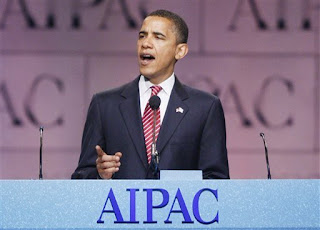 In 1986
In 1986, life had become intolerable in Beirut. The Lebanese civil war, in one of its innumerable permutations had made life miserable. The future looked bleak and I had reached a crossroads in my professional life. I was a young physician who had long aspired to become a neurologist, the brain and its complexity having captured my imagination early in my university years. But there was no neurology training programs in Lebanon. Besides, even though I had spent years in Lebanon, as a Syrian, I would not be allowed to practice in Lebanon when my training was complete. It did not matter that I had lived longer in Lebanon than in Syria and that I cared for the place despite the fact that I would always be the -Syrian-neighbor that everyone loved to hate. I had little choice but to leave and jumped at the first chance I got for an internship in the United States.
America was a familiar place to me having spent my college years here several years before. Yet despite that, the transition was not easy. The calm, order and predictability of my new life in the U.S. was jarring after living seven years of chaos and civil war. There was a sense of guilt at having "abandoned", in a time of turmoil, a place I cared for. The professional transition was easier. My AUB training prepared me well for the way medicine is practiced in the United States. It also helped that most of the resident trainees at the community hospital I initially worked at were also AUB graduates and that we often, to the dismay of the medical director, conducted patient rounds in Arabic!
There were, needless to say, other challenges along the way that necessitated perseverance and a thick skin. Perhaps the biggest challenge is that of overcoming the label of being a foreign medical graduate. It is like a Scarlet letter sewn to your back that marks you as suspect as far as the quality of your training and your competence and you always have to work twice as hard to prove your worthiness. Over time, as you finish your training and prove your competence, the scarlet letter fades and you are finally accepted as an equal among your peers. Nevertheless, it leaves an indelible mark on your psyche. Even now, long after my being a foreign medical graduate has ceased to matter, I bristle in anger at derogatory comments about foreign doctors. More than once, I heard the director of our training program, in my presence, grumbling that he might have to "settle" for a foreign medical graduate if he unable recruit an American graduate. Program directors would rather settle for a less competent American graduate than have the reputation of their training program sullied by the presence of a foreign medical graduate.
Another challenge for a foreign doctor is anticipating how your patients will respond to you. You are, after all, the doctor who looks different and has a funny name. In fact this turns out not to be much of a challenge. Most ordinary Americans could care less where you came from as long as they thought you competent and you treated them with respect. In many ways they were less biased than professional colleagues. Most of those who are curious enough to ask where I am from, look blankly when I tell them I was Syrian. You get responses like "I remember reading something about Damascus in the Bible" or from a patient who learned from the morning headline of trouble "over there" and kindly inquires "how is your family doing in Palestine?" despite my having told him that I was Syrian on several occasions. Few are not geographically challenged and handful are surprisingly well informed. One elderly man in his nineties would ask me at each visit about Assad the eye doctor. He thought that Bashar was a handsome man (?!!). Overtly hostile patients were few and far between. One such patient who was referred to me, launched into a tirade of insults on hearing my name when he called for an appointment. It took the secretary several calls before she convinced him that I am the right person to see. He looked at me suspiciously on his first visit, but I disarmed him by pretending not to know what transpired prior to the visit and treated him like any other patient.
America prides itself for being a land that rewards competence and hard work. I dare say that for me, and I suspect for most foreign born and trained doctors, this is largely true. Americans in positions of power are, by and large, capable of dissociating their personal biases and preferences from their professional lives. The chair of my department is a born again Christian with a very close-minded view of anyone not like him. Yet, I never felt that this fact ever figured in his assessment of the quality of my work or his willingness to promote me.
In the end, my experience as a hakeem in America had less to with my being Syrian and everything to do with my being a physician. As much as the patients I cared for over the years have provided me the experience that solidifies my medical competence, they have also provided me with even richer life experience. Illness is the great equalizer, it strips you of all that defines you as a healthy, functioning individual. It is in this naked and vulnerable state that a person comes to you for help and few human relationships are as intimate or as intense.






